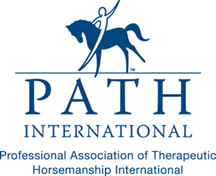|
Bob: Good morning, Keyman! I'm excited to sit down with you today and delve into your journey and the science behind the human-horse bond. Keyman: Good morning, Bob! I'm glad to be here and share my experiences with you. Bob: Let's start with your background. I understand your real name is Karas Kiyara, meaning "the best," and you come from a remarkable lineage, with the legendary Black Stallion as your great-great-grandfather. Can you tell us a bit about your family history and how it has influenced you? Keyman: Absolutely. My lineage is something I take great pride in, as it symbolizes strength, resilience, and a deep connection to the equine world. The legacy of the Black Stallion has always inspired me to strive for greatness and forge meaningful bonds with those around me. Bob: That's truly inspiring, Keyman. Now, let's talk about your journey to STEPS. I understand you underwent some significant life changes before finding your way here. Could you share a bit about that and how you and Starbuck became such close companions? Keyman: Of course. Life has a way of throwing unexpected challenges our way, and I've certainly had my share of them. After navigating through a period of change, I found solace and purpose here at STEPS. Starbuck and I connected on a profound level from the moment we met. His unwavering support and companionship have been invaluable to me as I've navigated this new chapter of my life.  Bob: It's incredible how we as horses can provide such comfort and support during times of transition. Now, let's delve into the science behind the human-horse bond and how we use it in equine assisted counseling. We often hear about the powerful bond between humans and animals, but could you explain how this bond translates into therapeutic benefits? Keyman: Absolutely. The human-animal bond is a truly remarkable phenomenon with profound therapeutic implications. When individuals interact with animals, such as horses, their bodies can release oxytocin, often referred to as the "social connection hormone." This hormone promotes feelings of trust, relaxation, and well-being, making clients more receptive to the counseling process. Additionally, the presence of animals has been shown to reduce cortisol levels, the stress hormone, which can help alleviate anxiety and promote emotional regulation. Interacting with animals also lowers human blood pressure, improves their heart rate, and reduces their anxiety. Bob: That's fascinating. It's incredible to think about the physiological and emotional benefits that come from simply being in the presence of animals. Can you elaborate on how horses, in particular, are adept at reading and responding to human emotions? Keyman: Absolutely. We as horses are incredibly intuitive animals with a keen ability to sense and respond to human emotions. We are masters at reading their subtle cues such as body language, facial expressions, tone of voice, and even scent. This heightened sensitivity allows us to read and respond to the emotional state of our human clients, creating opportunities for profound insight and growth. By providing nonverbal feedback and validation, we enhance the therapeutic process and deepen the connection between our clients and counselors.  Bob: It's truly remarkable how we can facilitate healing in such a unique way. Well, Keyman, thank you so much for sharing your story and insights with us today. It's been a pleasure getting to learn more about the transformative power of our relationship with humans. Keyman: Thank you, Bob. It's been a pleasure sharing my experiences with you. I hope our conversation has shed light on the profound impact that we can have on our human friends’ lives and well-being Want to hear more from Keyman? Join Keyman's Carrot Club and support his care! Interested in working with Keyman as a client? Fill out a Counseling Interest Form!
0 Comments
Leave a Reply. |
AuthorSTEPS With Horses Archives
June 2024
Categories
All
|
Let's stay in touch!
Mailing AddressP.O. Box 123737
Fort Worth, TX 76121 |
Telephone |
|
A Texas Nonprofit Corporation and a 501(c)(3) Tax-Exempt Charitable Organization
Copyright 2024 S.T.E.P.S. With Horses

 RSS Feed
RSS Feed
